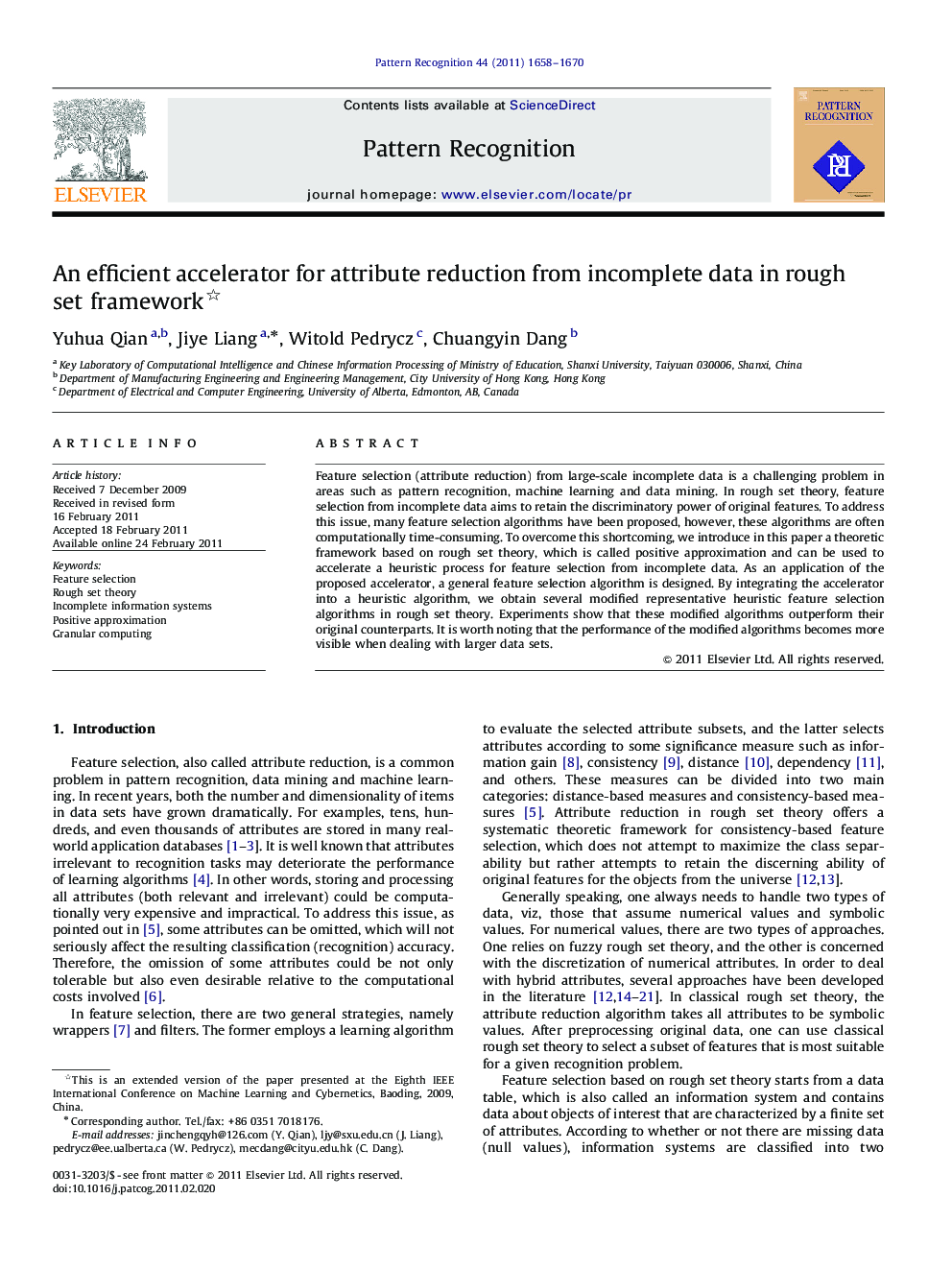| Article ID | Journal | Published Year | Pages | File Type |
|---|---|---|---|---|
| 533537 | Pattern Recognition | 2011 | 13 Pages |
Feature selection (attribute reduction) from large-scale incomplete data is a challenging problem in areas such as pattern recognition, machine learning and data mining. In rough set theory, feature selection from incomplete data aims to retain the discriminatory power of original features. To address this issue, many feature selection algorithms have been proposed, however, these algorithms are often computationally time-consuming. To overcome this shortcoming, we introduce in this paper a theoretic framework based on rough set theory, which is called positive approximation and can be used to accelerate a heuristic process for feature selection from incomplete data. As an application of the proposed accelerator, a general feature selection algorithm is designed. By integrating the accelerator into a heuristic algorithm, we obtain several modified representative heuristic feature selection algorithms in rough set theory. Experiments show that these modified algorithms outperform their original counterparts. It is worth noting that the performance of the modified algorithms becomes more visible when dealing with larger data sets.
